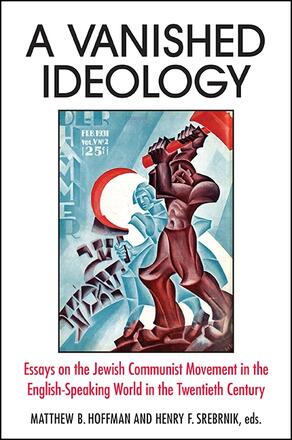
A Vanished Ideology
Essays on the Jewish Communist Movement in the English-Speaking World in the Twentieth Century
Alternative formats available from:
First comprehensive examination of the rise and decline of the Jewish communist movement in the English-speaking world.
Description
While a number of books and articles have been written about Jewish Communist organizations and their supporters in particular countries, an academic treatment of the overall movement per se has yet to be published. A Vanished Ideology examines the politics of the Jewish Communist movement in Australia, Canada, Great Britain, South Africa, and the United States. Though officially part of the larger world Communist movement, it developed its own specific ideology, which was infused as much by Jewish sources as it was inspired by the Bolshevik revolution. The Yiddish language groups, especially, were interconnected through international movements such as the World Jewish Cultural Union. Jewish Communists were able to communicate, disseminate information, and debate issues such as Jewish nationality and statehood independently of other Communists, and Jewish Communism remained a significant force in Jewish life until the mid-1950s.
Matthew B. Hoffman is Associate Professor of Judaic Studies and History at Franklin and Marshall College and the author of From Rebel to Rabbi: Reclaiming Jesus and the Making of Modern Jewish Culture. Henry F. Srebrnik is Professor of Political Science at the University of Prince Edward Island and the author of Dreams of Nationhood: American Jewish Communists and the Soviet Birobidzhan Project, 1924–1951.
Reviews
"…Matthew Hoffman and Henry Srebrnik's illuminating and nuanced edited volume stands as a welcome, original, and necessary contribution to the study of global Jewish political radicalism." — American Jewish History
"…offer[s] a fascinating … glimpse into the lives of a varied cross-section of English-speaking Jewish Communists as they attempted to reconcile their beliefs with the ever-changing landscape of political culture in the 20th century." — Labour / LeTravail
"Hoffman and Srebrnik's compilation excels in bringing together in one volume articles from multiple national contexts of the Jewish Communist movement … A Vanished Ideology [is a] welcome addition to the field of Canadian Jewish studies." — Canadian Jewish Studies